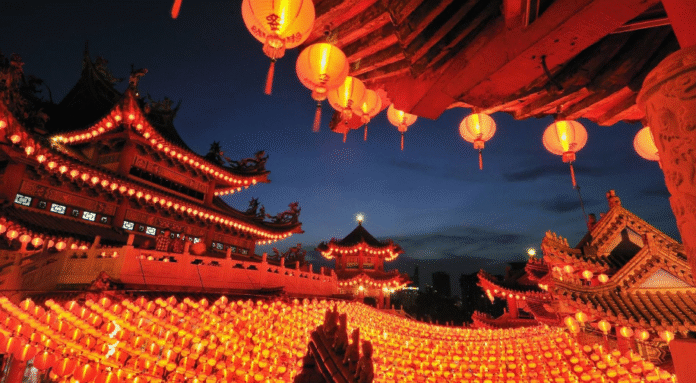By Darshini Dayanidhi & Tabitha Swiatek
This year, WEHS observed Lunar New Year with a day off on January 29th – a first in the school’s history. This milestone offers students a unique opportunity to learn about the cultural significance of this historic holiday, celebrated by millions worldwide. The day off is a chance to embrace and appreciate the diverse customs that make the Lunar New Year special.
The Lunar New Year, also known as the Spring Festival in China and Tet in Vietnam, is one of the most celebrated holidays across East and Southeast Asia. Rooted in centuries-old traditions, this festival marks the beginning of the lunar calendar and symbolizes renewal, prosperity, and family unity.
At the heart of the Lunar New Year are customs that connect people to their heritage and loved ones. Preparations begin weeks in advance, with families cleaning their homes to sweep away bad luck and decorating with red lanterns, banners, and couplets that signify happiness and fortune. The color red, believed to ward off evil spirits, plays a prominent role throughout the festivities.
On New Year’s Eve, families gather for a reunion dinner, one of the most significant meals of the year. Dishes like dumplings, fish, and rice cakes are served, each symbolizing prosperity, unity, and success. In Vietnam, bánh chưng and bánh tét, traditional sticky rice cakes, hold a special place in Tet celebrations. The Lunar New Year is also marked by traditions that welcome good fortune. Red envelopes, or *hongbao* in Mandarin and *li xi* in Vietnamese, are given to children and unmarried adults as a gesture of blessing. Fireworks and dragon dances light up streets, symbolizing the drive to scare away evil spirits and usher in happiness.
Lunar New Year is an exciting celebration that many of your fellow East students enjoy celebrating! Let’s take a dive into what students think. Yalin, a junior, was able to give some insight into her Lunar New Year traditions. “I usually celebrate with friends and family with a big dinner,” she commented. “We have a bunch of food, particularly homemade dumplings. Everything is homemade. We also have rice and crab and a bunch of seafood. It is very fun!”
Jimin, a senior, was also able to provide some insight into her Lunar New Year celebrations
“Although it is not traditional for us to celebrate here, we still are able to enjoy gathering with some family. Traditionally, in Korea, we would bow and get money from our grandparents. Here in America, we enjoy spending time with half of our family, and we do so by enjoying traditional rice cakes and soup.”

